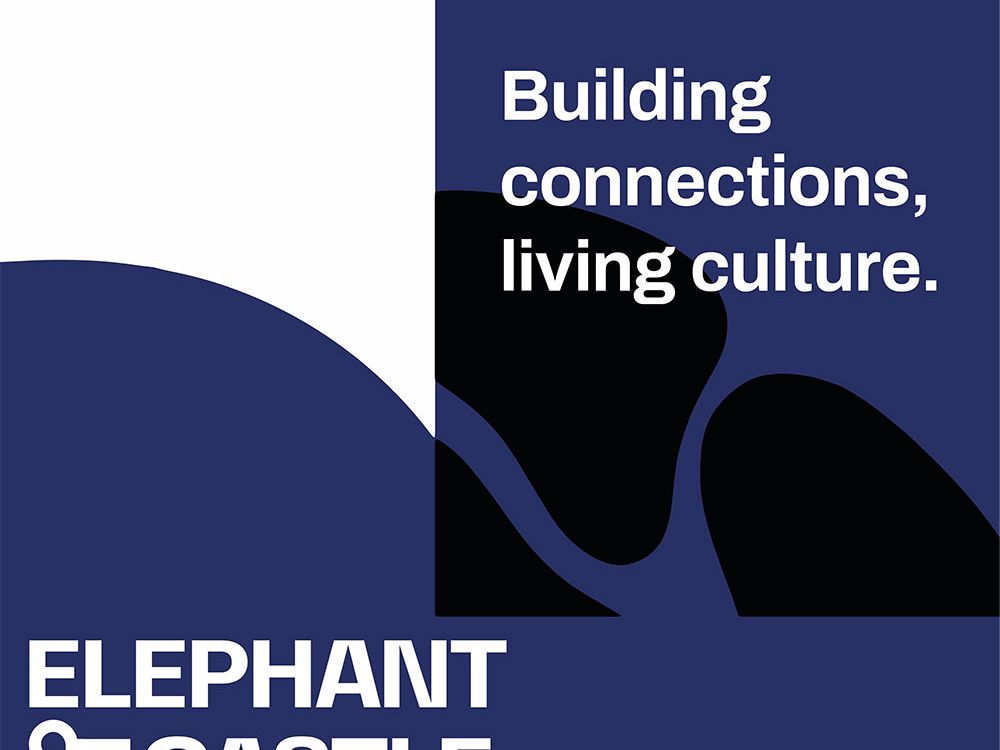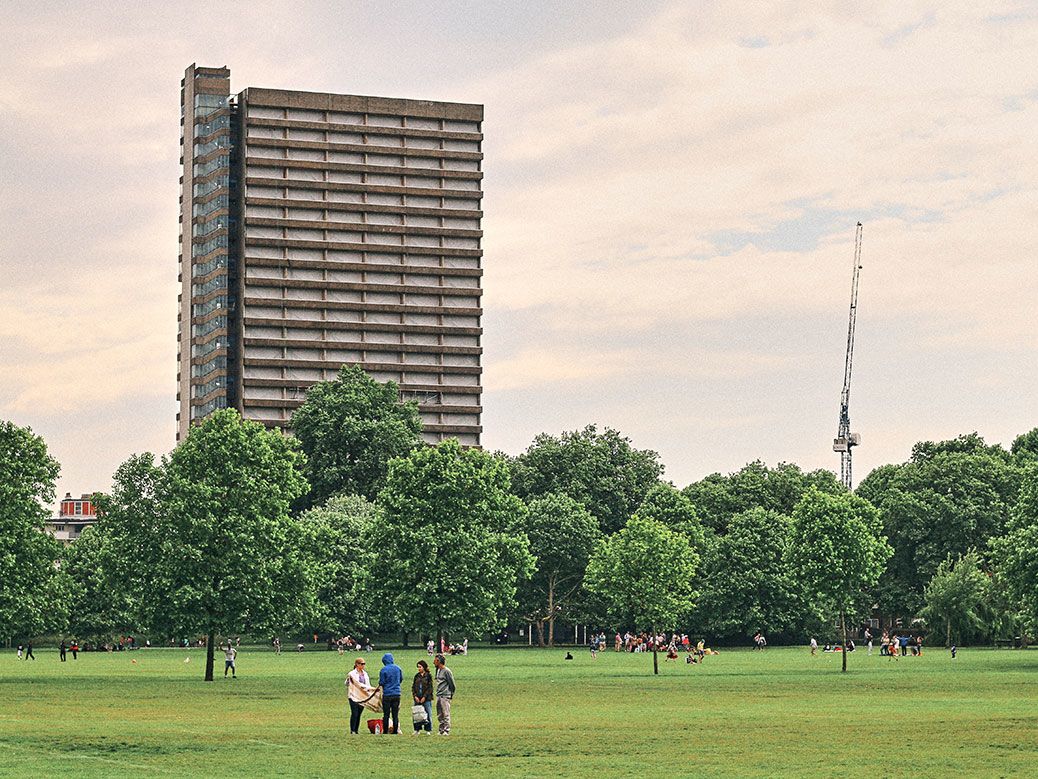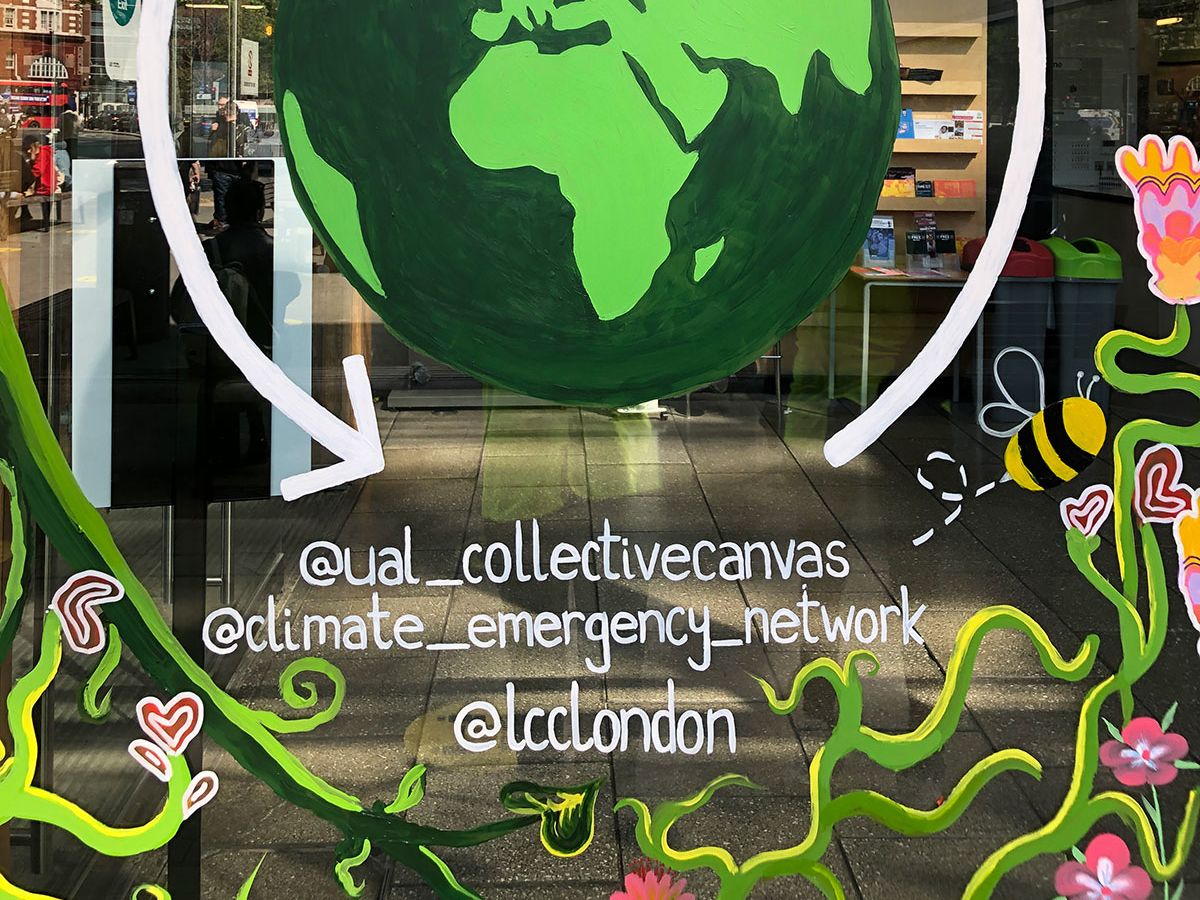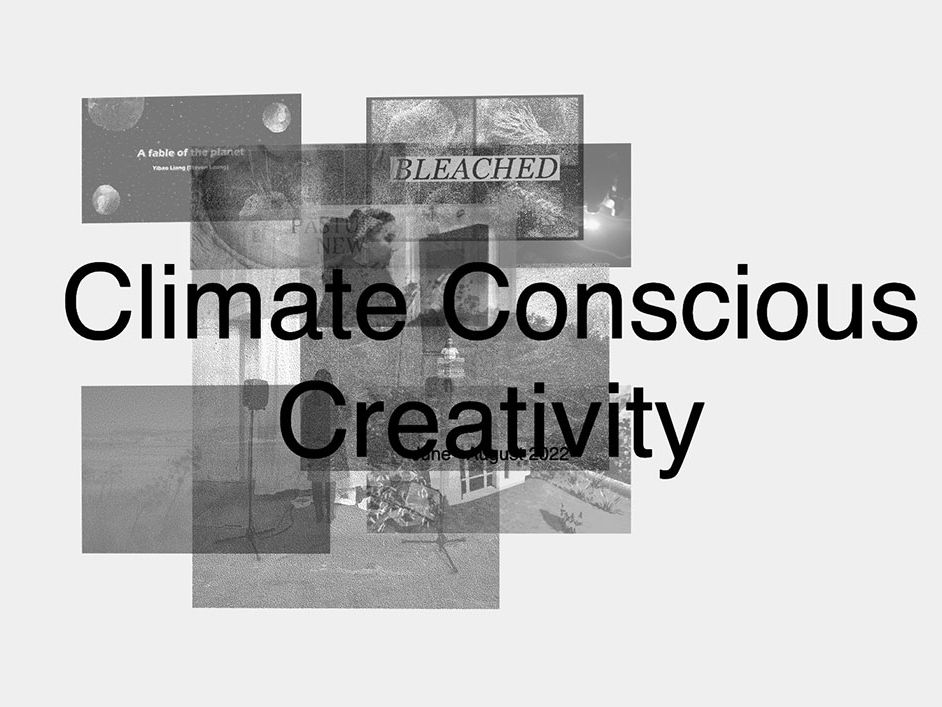
MA Service Design students receive honourable mention at Cumulus Green competition
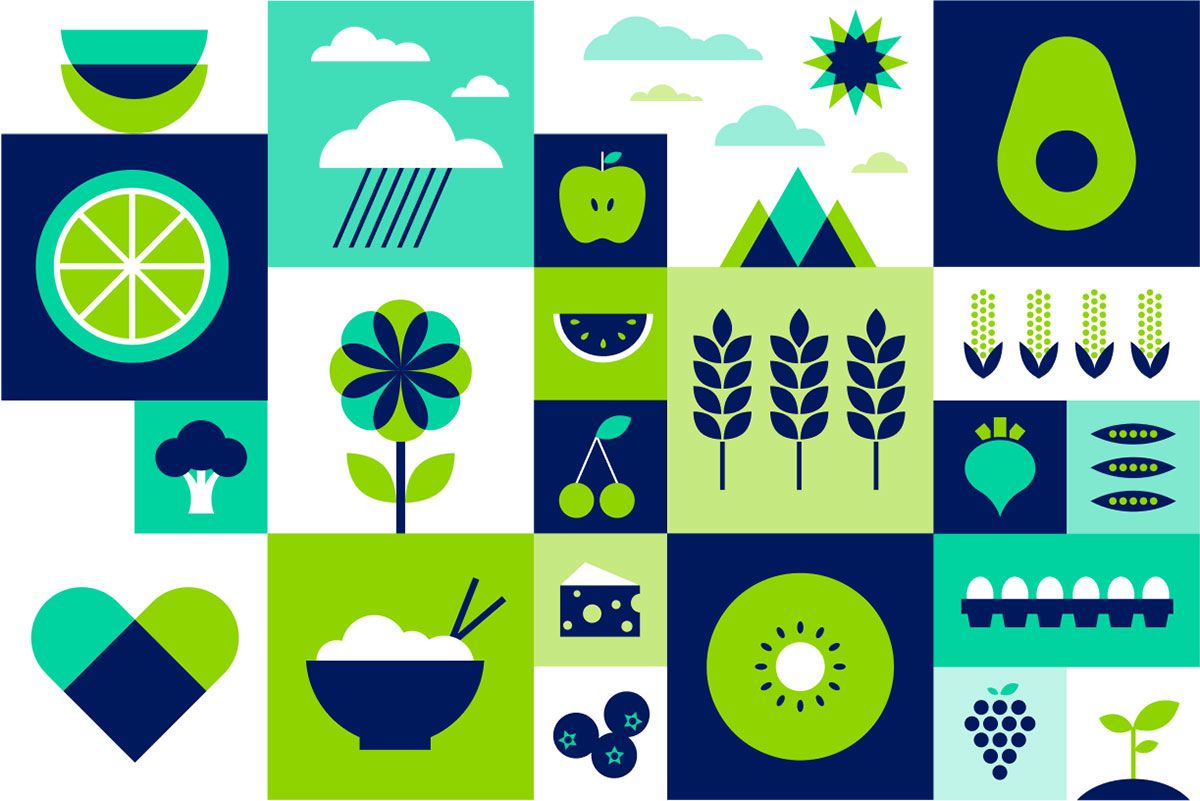
- Written byChloe Murphy
- Published date 09 December 2022

Bringing together creative vision with pragmatic insight, service design is a future-facing discipline that uses interdisciplinary approaches and core principles to explore the effect of design on individuals, communities and society.
With a focus on developing sustainable solutions and optimal experiences, service design practitioners consider complex connections between systems, actions and infrastructures, and channel their creativity into generating social good.
In Autumn 2022, a group of MA Service Design students from London College of Communication (LCC) were recognised by the leading global organisation of art and design education and research, the Cumulus Association. Founded with the aim of building bridges for creative education across borders, Cumulus brings together member institutions across the world to emphasise the importance of international collaboration in research, practice and pedagogy.
Each year, their Cumulus Green competition invites students to submit art and design projects developed in response to some of the world’s most pressing challenges. Their 2022 brief, titled Cumulus Green 2022: Nurturing Our Planet, provided an opportunity to explore how we might transform our food systems to end food insecurity – ‘creating better conditions for a more equitable and environmentally prosperous world’ in ways that align with the United Nations Sustainable Development Goals.
LCC students Moosa Khan, Claire O’Brien, Yaqi Zhang, Jiaoyan Yang and Sampada Muralidhar received an honourable mention for their concept, Incubation Garden. Initially developed in collaboration with Southwark Council for their Design Futures unit, which is led by tutor Dr Lara Salinas, the project focused on the relationship between communities, individuals and local green spaces in one of the first UK boroughs to recognise the urgent need for action in mitigating the effects of climate change.
Working as a team, the students identified that social silos often provide a significant barrier to addressing food insecurity and hunger in ways that prevent the development of collective action. Adopting a ‘Design-through-Research’ methodology, they identified the potential of local green spaces to facilitate dialogue and movement between a range of diverse stakeholders ranging from individuals to council representatives and community groups.
Encouraged by Dr Salinas to develop their ideas further for the Cumulus Green brief, the resulting concept, Incubation Garden, was envisioned as a shared space in which the local communities, council representatives, academia and businesses could grow and address consumption challenges through ‘growth zones’ - areas designed to highlight behaviours, skills, innovations and policies in ways that enabled stakeholders to collaborate and work in context with one another to share, create and innovate.
Ultimately, the Garden would be able to improve vulnerable citizens’ access to healthy food, nutritional knowledge and agricultural practices - not only supporting them to grow produce, but also to change behaviours around consumption while providing a model for broader social transformation.
We caught up with one of the students involved in the project, Moosa Khan, to discuss the importance of generating long-term impact, collaborating with diverse local communities, and thinking beyond technology as a marker of innovative work.
Incubation Garden | Cumulus Green
Have you always been interested in service design, or is this an area you've moved towards over time?
A few years ago, inspired by the Next Bank redesign by R/GA and Whirlpool’s Care Counts programme, I started exploring the idea of creativity being applied towards business transformation, which is when I chanced upon the field of service design.
Prior to this, I had a delightful career in digital advertising; I grew with the industry, and along with that, gained a larger perspective of the kind of real-world problems that need our attention and the approaches needed to address them effectively.
Ultimately, the approach that I was most drawn to was ultimately the one that makes the least noise while having a long-term impact – the service design approach.
Tell us about your creative practice.
I’ve found that in my design practice, I gravitate towards more community-led and asset-based approaches, which are also the themes that you’d see most in my work.
A lot of this practice took shape during community-level projects with Camden Council, Southwark Council and Healthwatch Southwark, all of which I was fortunate to have been a part of during my time at UAL. These projects put community members and their needs at the centre while encouraging me to co-design with them in mind.
I use every chance I get – whether during research, co-creating or testing - to consider untapped platforms that can explore or engage, depending on what’s accessible to the user. To give you an example, for INTERIM – a service on health information access that I’m currently developing - I conducted quick user research using the Nextdoor app, and accessed extreme users at anti-vax protests via Telegram groups.

How did you find out about the Cumulus Green competition, and why did you decide to get involved?
I remember seeing a call for student proposals in a UAL newsletter. The brief was to address hunger - not simply to end it, but also to achieve food security and improved nutrition while promoting sustainable agriculture.
This aligned with a speculative design proposal that my fellow classmates Yaqi, Joyine, Claire, Sampada and I had developed for the Southwark Council as part of the Design Futures unit: Incubation Garden.
I felt that the opportunity would also provide a good litmus test to see whether the concept was adaptable and robust like we hoped it would be.
What inspired your initial ideas for Incubation Garden, and how did you develop them?
The concept of Incubation Garden came from London’s community gardens, where we observed how working together in these spaces helped break down walls between individuals and groups. This observation made us think about what would happen if we could reimagine community gardens as hubs for collaborative climate action between community, businesses and local councils - where the current silos that each of them operate within could be removed.
We envisioned that Incubation Garden could answer the question: if we can grow food in a garden, why not ideas, skills, support and action for climate positive action?
For the Cumulus Green challenge, we adapted the concept to the current situation we’re seeing unfold in the UK: the Cost of Living Crisis and the resulting food poverty being faced by many families. We modified the garden to focus on address food security and hunger in urban locales, which is an issue that we felt has often been overlooked by global agencies.

What were some of the key milestones in your creative process?
One key turning point was when, through trial and error, we learnt that tying up the concept in technology for the sake of making something ‘futuristic’ would only make the concept less accessible. It made us realise that we often get carried away by the thought of creating a shiny, chrome-plated future artefact as proof of advancement.
When we started interacting with residents of Southwark, we realised that the Council’s brief to us didn’t take into account the fact that community members aren’t just recipients of services, but also willing and active participants in bringing about climate positive action. This was a defining moment for us as that’s where we started seeing radical responsibility already in action.
What were the highlights of the experience?
One highlight was experiencing what design is capable of. By shifting the focus from building a ‘futuristic’ output to something that helps to create and access positive future outcomes, we were able to design a new system of community-council collaboration. When the potential impact of that design began to sink in, the design dopamine just flooded in!
Prototyping was another highlight: using cheap and cheerful diegetic prototypes and roleplay, we were able to quickly sketch, test and share service elements with the leaders of the community garden which enabled them to judge and share feedback on.

What have you most enjoyed about your time as a student at LCC?
The thing that I’m most grateful for during my time at LCC has been the chance to learn from all of the talented people I studied and worked with – my fellow classmates, my tutors, lecturers, and the people working across local government.
They inspired me to burrow deep into this vast ocean of knowledge, and to discover all that’s unfolding in the world of user-centred design.
What advice would you give to prospective students who might be interested in exploring the world of service design?
I’d simply say take the leap. Service design is a revolution in not just the way we design, but what we design.
Things like services, processes, organisational structures, systems and ways of working are all invisible, complex, extremely vast and understated - but essential to the functioning and betterment of the world around us.
Related links:
- Find out more about the Cumulus Green competition.
- Explore MA Service Design at London College of Communication.
- Learn more about our Design School.
